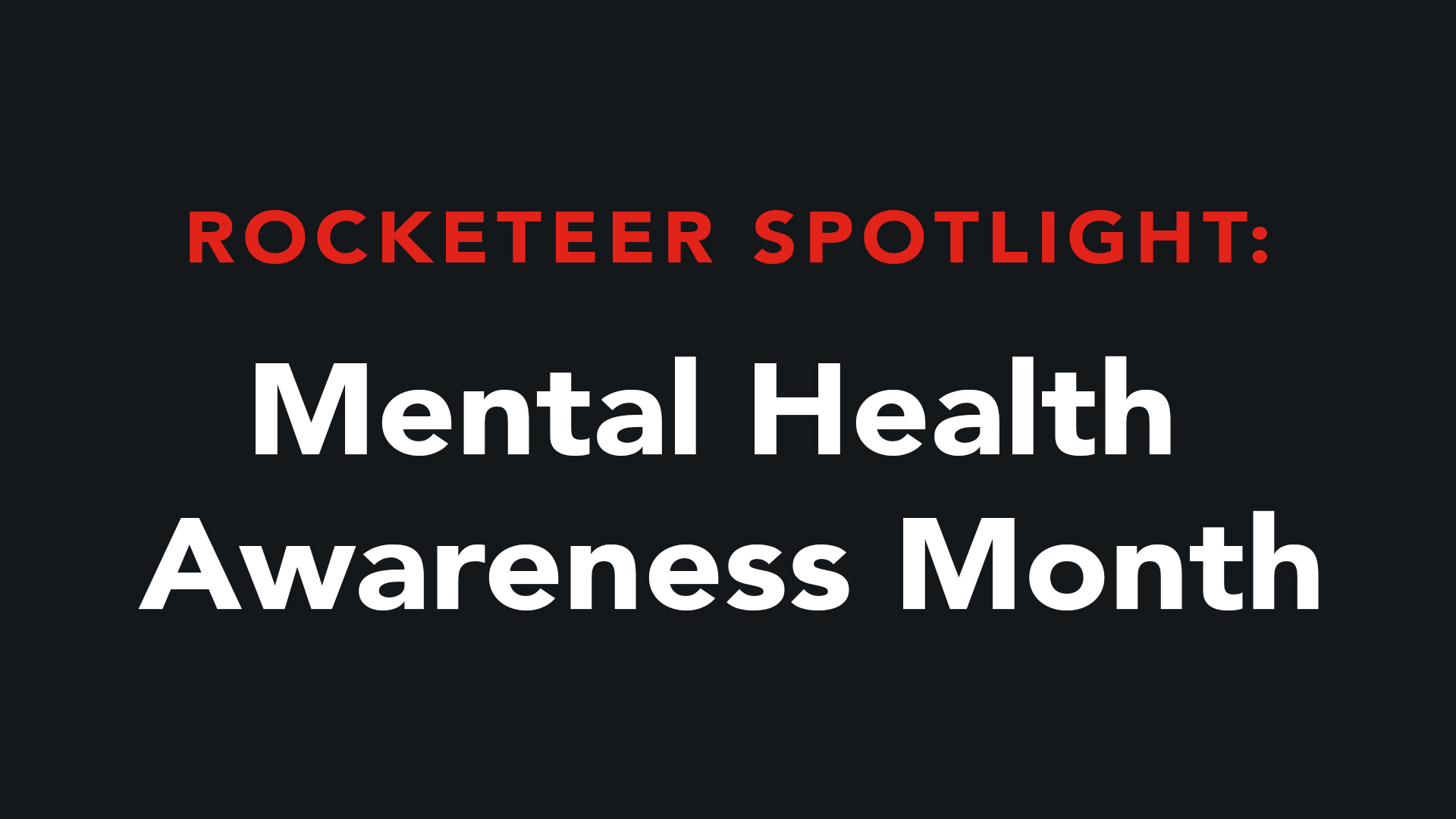Published by
At Bottle Rocket, our people are our greatest strength. We believe in diversity, inclusion, and racial equality for everyone each and every day of the year. In partnership with Ben Wilburn, Diversity, Equity, and Inclusion Lead at Bottle Rocket, we will bring attention to a different group of individuals inside Bottle Rocket and celebrate and honor their lived experiences.

Harolyn Salandy
Ben Wilburn (BW): Tell me a bit about yourself! Who are you inside and outside of Bottle Rocket? What are your hobbies and interests?
Harolyn Salandy (HS): I started at BR on June 1, 2021, as a Technical Delivery Lead and recently changed roles to the Delivery Manager at the Center of Excellence. Outside of Bottle Rocket, I’m a runner and duathlete, and I spend time supporting others in the running community. I’m also a mother to a 22-year-old son who recently graduated from college and an active 15-year-old daughter. I enjoy spending time with Framily (friends and family) and hanging out with many kids on road trips or at home.
BW: May is Mental Health Awareness Month; when you think about your life up to this point – what have you learned about maintaining or building strong mental health?
HS: To me, building and maintaining cognitive resilience is key to living one’s best life. I grew up with very little, but we learned to be content with what we had and always strive to be our best. This taught me how to build the inner fortitude I needed to get through several years of extremely tough situations as an adult.
BW: There is a lot of stigma surrounding mental health and wellness. Did you encounter any of this in your own journey? How did you work through those feelings, and what did you learn?
HS: At times in my life, I felt sad and overwhelmed, but I did not put a label on it. Mental health was not a topic of discussion, and labeling was not a “thing” in my community or family. How we felt was not talked about; it was ‘just life.’ Ten years after graduating from college, I decided to pursue a master’s degree in the mental health field. I chose this program because my life was a “hot mess” at the time. I gained insight and appreciation for mental health and emotional wellness. I learned a lot about myself and began my healing journey.
BW: When you think about diversity, equity, and inclusion and topics like mental health – how do they connect for you?
HS: People process information or respond to situations based on their experiences, culture, learned behavior, internal fortitude, or mental state. It is not a one-size-fits-all approach. To provide valuable support, it is essential to understand the individuals to whom the support will be provided.
BW: What advice would you give someone looking to better their mental and emotional health?
HS: Find something healthy that keeps you balanced, then do your best to never stray from it. I call this “my center.” Whatever that “center” is for you, make it happen. When you feel stressed or like you’re losing control, return to your center.
BW: Were any tools and resources helpful to you?
HS:
- Journaling
- Listening to music
- Sharing with a trusted friend
- Listening to speakers or reading a book on the topic to gain insight

Emma Carnes
Ben Wilburn (BW): Tell me a bit about yourself! Who are you inside and outside of Bottle Rocket? What are your hobbies and interests?
Emma Carnes (EC): Thanks to Bottle Rocket’s Work from Wherever policy, I can pursue my dream of life on the road in my RV while still excelling in my career. I am a Senior UX Researcher, and I love talking to users and sharing their point of view with my teams and clients during engagements.
During my breaks or after work, I love taking walks in nature. Outside of work, I spend a lot of time pursuing creative hobbies, like learning the guitar, water coloring, needlework, and writing. I have also been working on a personal challenge to cook a recipe from every country. It has been a great way to try new ingredients and reimagine familiar flavors. My hobbies provide me with a sense of relaxation, and it is also rewarding to see my skills progress over time.
BW: How did you land at Bottle Rocket?
EC: I heard about a UX Research position at Bottle Rocket from a former rocketeer who graduated from the same Applied Anthropology master’s program at the University of North Texas. I really liked what I heard from him about the XD Team and DEI efforts and was thrilled to land the position. Before working for Bottle Rocket, I worked for Fuseproject, a design company in San Francisco. My research in graduate school was related to sexuality, relationships, and the law, and I would love an opportunity to continue doing applied research in this area in my free time.
BW: May is Mental Health Awareness Month; when you think about your life up to this point – what have you learned about maintaining or building strong mental health?
EC: I am where I am in my mental health journey, thanks to what I have learned from therapists, loved ones, and strangers. Mental health has been a lifelong battle for me, and learning how to set healthy boundaries, love myself, reframe my thinking, finding a good balance of medications and self-care have been crucial. Despite these efforts, I wouldn’t necessarily say I have strong mental health. Instead, I am grateful that my current medications, treatments I have gone through, and techniques I have learned are serving me well right now.
I think my progress looks like this:

BW: There is a lot of stigma surrounding mental health and wellness. Did you encounter any of this in your own journey? How did you work through those feelings, and what did you learn?
EC: I am grateful that recently mental health has become more acceptable to talk about. Growing up, I felt alone in my mental health struggles and would cope by self-isolating. I felt like I was the only one going through my struggles. Hearing my peers talk more about seeking help for their mental health encouraged me to do the same and helped me find community in people who had been through similar situations. I love learning things that cause me to challenge my beliefs. I thought, until recently, this stigma was unique to mental health, but now that I am dealing with a physical condition that causes chronic pain, I am realizing that there is a stigma for more invisible illnesses and how hard it is to be believed about things like pain and how medications affect my mental health even without pain management.
BW: When you think about diversity, equity, and inclusion and topics like mental health – how do they connect for you?
EC: Mental health and societal/cultural issues are closely intertwined. Mental health affects us unequally across gender, race, ethnicity, sexual orientation, socioeconomic status, ability, and age. We do not all have the same access to adequate care and have different lived experiences. For example, I have the privilege of going through life without personally experiencing the trauma of racism. The therapy and psychiatry that was helpful for me could be harmful to others for many reasons, including medical racism and lack of cultural respect and awareness.
BW: What advice would you give someone looking to better their mental and emotional health? Were any tools and resources helpful to you?
EC: One piece of advice everyone could benefit from is building a toolbox of healthy ways to cope or self-soothe. I have a list in my phone so that when I am in a bad mental health space and having a hard time coming up with ways to cope, I can pull up my notes and pick something that feels doable.

Joyce Liu
Ben Wilburn (BW): Tell me a little bit about yourself!
Joyce Liu (JL): I’m a visual designer at Bottle Rocket and have been here for over a year! Apart from designing, I like to dabble and explore hobbies like pottery and weightlifting. I also run a small and humble food page on Instagram, documenting and highlighting small businesses that I love.
BW: May is Mental Health Awareness Month and Asian American and Pacific Islander Heritage Month. Reflecting on your lived experience, tell me about your own journey.
JL: Growing up, physical health was more of a priority over mental health. My family never talked about it with each other. I didn’t realize I had depression and anxiety until I moved out and surrounded myself with people open to discussing their own experiences.
It was difficult at first to come to terms with the fact that I could be depressed. I used to believe that was exclusive to specific situations and that I didn’t deserve to feel that way. Learning more about the different spectrums of mental health has been life-changing because now I know better ways to get things done during hard times.
BW: What stigmas are present when you think about mental health in Asian communities?
JL: Guilt and shame were stigmas that I personally experienced. My parents lived way more difficult lives than I did at my age, and I would always feel guilty for being sad over things that seemed so small. Also, it felt like I was being ungrateful for feeling such emotions when my parents did so much to provide for our family.
BW: How do people overcome that stigma?
JL: Education and having an open, safe space were important for overcoming the guilt.
BW: How can we have more meaningful conversations around mental health at the intersection of race, ethnicity, and identity?
JL: Learn to have grace and patience, especially with different generations. It took me a while to accept that my parents would never understand my problems, and that’s okay. Addressing mental health can be a luxury and a privilege, which is something that my parents didn’t have access to.
BW: What is helpful?
JL: Learning about your own boundaries and committing to them.
BW: What is harmful?
JL: Dismissing someone’s experience and comparing it to others.




